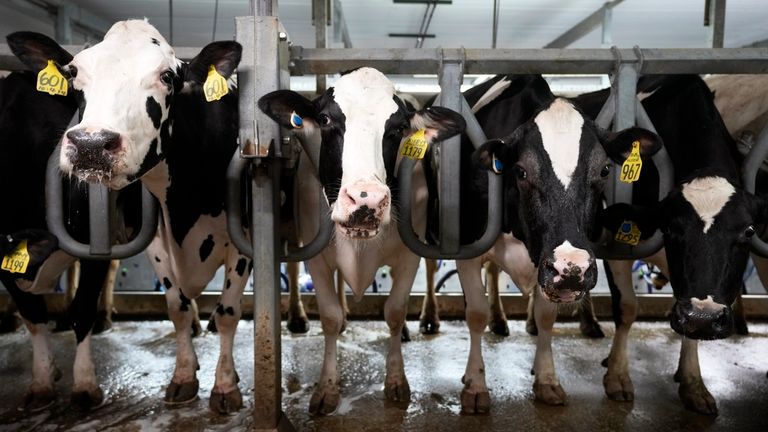Proper nutrition plays a crucial role in enhancing honey bee resilience against the combined threats of viral infections and pesticide exposure, a study in the journal Science of the Total Environment has revealed.
Since 2006, beekeepers in the U.S. have reported unprecedented losses averaging 30 percent each winter, according to the Ohio State University. Wild and commercial bees play a vital role in ecosystems, pollinating plants and propping up life as we know it. So, understanding how they can better survive is of crucial importance.
The research team took an innovative approach by examining the interplay of three major factors affecting honey bee health: nutritional stress, viral infections, and pesticide exposure. This comprehensive analysis sets the study apart from previous research, which typically focused on only one or two factors at a time.
"Multiple stressors are often bad for survival," graduate student Edward Hsieh, who led the research, said in a statement. "However, it is always context-dependent, and you have to be aware of all these factors when you're trying to make broad statements about how interactive effects affect honey bees."
The study utilized pollen collected by honey bees from small patches of restored prairie bordering agricultural fields in Iowa. Researchers used this pollen to determine realistic levels of pesticide exposure in the wild. They then conducted a series of experiments exposing caged honey bees to various combinations of dietary, viral and chemical treatments.
The experiments yielded intriguing results. Bees fed artificial pollen and exposed to both a virus and pesticides suffered high mortality rates. However, when provided with natural pollen, fewer bees died even when exposed to a virus and a mixture of pesticides.
Surprisingly, in some cases, low-level pesticide exposure appeared to help bees cope with viral infections, but only when they had access to proper nutrition.
"The takeaway from this study is that bees are quite resilient even to the interaction of pesticides and viruses if they have really good nutrition," co-author of the study, professor Adam Dolezal, said in a statement. "However, we don't want people to conclude that pesticides are not a big deal for the bees."
The researchers cautioned that different pesticides have varying effects on bees, and exposure to any pesticide can still be harmful. Dolezal said: "Different pesticides have different molecular targets and do different things. It's not okay if bees get exposed to a little bit of any pesticide. It depends on the chemical.
"Bees have this inherent ability to deal with stress, and so if you give them a little bit of stress, like a low-level exposure to a pesticide, it may help them deal with a bigger stress from a pathogen like the virus."
The study offers reassurance that providing high-quality prairie habitats near agricultural sites does not create an "ecological trap" for bees. Previously, ecologists worried that narrow strips of pollinator habitats near farms might lure bees in, only for them to be harmed by pesticide exposure when they forage on nearby crops.
However, the findings challenge these concerns, revealing that the nutrient-rich pollen from prairie habitats can enhance bees' resilience to both pesticides and viral threats.
"It is gratifying to know that providing high-quality habitat can at least increase their resilience to these stressors," Hsieh said.
Do you have a tip on a science story that Newsweek should be covering? Do you have a question about bees? Let us know via science@newsweek.com.
References
Hsieh, E. M., & Dolezal, A. G. (2024). Nutrition, pesticide exposure, and virus infection interact to produce context-dependent effects in honey bees (Apis mellifera). The Science of the Total Environment, 949, 175125. https://doi.org/10.1016/j.scitotenv.2024.175125
Disclaimer: The copyright of this article belongs to the original author. Reposting this article is solely for the purpose of information dissemination and does not constitute any investment advice. If there is any infringement, please contact us immediately. We will make corrections or deletions as necessary. Thank you.



